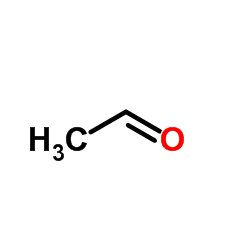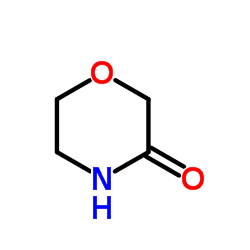75-39-8
| 中文名 | 1-氨基乙醇 |
|---|---|
| 英文名 | acetaldehyde,azane |
| 中文别名 |
1-胺乙醇
胺乙醇 |
| 英文别名 |
1-aminoethanol
acetaldehyde ammonia monoaminoethanol Ethanol,1-amino EINECS 200-868-2 aminoethanol Ethanol,1-amino-(8CI,9CI) MFCD00008058 |
| 密度 | 0.967g/cm3 |
|---|---|
| 沸点 | 109-111°C |
| 熔点 | 95-97°C (dec.) |
| 分子式 | C2H5NO |
| 分子量 | 59.06720 |
| 闪点 | 22.7ºC |
| 精确质量 | 59.03710 |
| PSA | 43.09000 |
| 折射率 | 1.431 |
| 储存条件 | 密封阴凉干燥避光保存。 |
| 更多 | 1. 性状:无色结晶。 2. 密度(g/mL,25/4℃): 未确定 3. 相对蒸汽密度(g/mL,空气=1):未确定 4. 熔点(ºC):95-97 5. 沸点(ºC,常压):109-111 6. 沸点(ºC,5.2kPa):未确定 7. 折射率:未确定 8. 闪点(ºC):未确定 9. 比旋光度(º):未确定 10. 自燃点或引燃温度(ºC):未确定 11. 蒸气压(kPa,25ºC):未确定 12. 饱和蒸气压(kPa,60ºC):未确定 13. 燃烧热(KJ/mol):未确定 14. 临界温度(ºC):未确定 15. 临界压力(KPa):未确定 16. 油水(辛醇/水)分配系数的对数值:未确定 17. 爆炸上限(%,V/V):未确定 18. 爆炸下限(%,V/V):未确定 19.溶解性:溶解于水,微溶于醚。 |
Synonym:Hexahydro-2,4,6-trimethyl-s-triazine trihydrat Section 2 - COMPOSITION, INFORMATION ON INGREDIENTS
Risk Phrases: 36/37/38 Section 3 - HAZARDS IDENTIFICATION EMERGENCY OVERVIEW
Irritating to eyes, respiratory system and skin.The toxicological properties of this material have not been fully investigated.Hygroscopic (absorbs moisture from the air). Potential Health Effects Eye: Causes eye irritation. Skin: Causes skin irritation. Ingestion: The toxicological properties of this substance have not been fully investigated. Inhalation: Causes respiratory tract irritation. Chronic: No information found. Section 4 - FIRST AID MEASURES Eyes: Immediately flush eyes with plenty of water for at least 15 minutes, occasionally lifting the upper and lower eyelids. Get medical aid immediately. Skin: Get medical aid. Flush skin with plenty of water for at least 15 minutes while removing contaminated clothing and shoes. Ingestion: If victim is conscious and alert, give 2-4 cupfuls of milk or water. Never give anything by mouth to an unconscious person. Get medical aid. Inhalation: Remove from exposure and move to fresh air immediately. If not breathing, give artificial respiration. If breathing is difficult, give oxygen. Get medical aid. Notes to Physician: Section 5 - FIRE FIGHTING MEASURES General Information: As in any fire, wear a self-contained breathing apparatus in pressure-demand, MSHA/NIOSH (approved or equivalent), and full protective gear. Extinguishing Media: Use water spray, dry chemical, carbon dioxide, or chemical foam. Section 6 - ACCIDENTAL RELEASE MEASURES General Information: Use proper personal protective equipment as indicated in Section 8. Spills/Leaks: Vacuum or sweep up material and place into a suitable disposal container. Clean up spills immediately, observing precautions in the Protective Equipment section. Section 7 - HANDLING and STORAGE Handling: Avoid breathing dust, vapor, mist, or gas. Avoid contact with skin and eyes. Avoid ingestion and inhalation. Use only in a chemical fume hood. Storage: Store in a cool, dry place. Store in a tightly closed container. Section 8 - EXPOSURE CONTROLS, PERSONAL PROTECTION Engineering Controls: Good general ventilation should be sufficient to control airborne levels. Exposure Limits CAS# 75-39-8: Personal Protective Equipment Eyes: Wear appropriate protective eyeglasses or chemical safety goggles as described by OSHA's eye and face protection regulations in 29 CFR 1910.133 or European Standard EN166. Skin: Wear appropriate protective gloves to prevent skin exposure. Clothing: Wear appropriate protective clothing to prevent skin exposure. Respirators: Follow the OSHA respirator regulations found in 29 CFR 1910.134 or European Standard EN 149. Use a NIOSH/MSHA or European Standard EN 149 approved respirator if exposure limits are exceeded or if irritation or other symptoms are experienced. Section 9 - PHYSICAL AND CHEMICAL PROPERTIES Physical State: Solid Color: very slightly beige Odor: Not available. pH: Not available. Vapor Pressure: Not available. Viscosity: Not available. Boiling Point: 110 deg C @ 760.00mm Hg Freezing/Melting Point: 96 deg C Autoignition Temperature: Not available. Flash Point: 55 deg C ( 131.00 deg F) Explosion Limits, lower: Not available. Explosion Limits, upper: Not available. Decomposition Temperature: Solubility in water: Specific Gravity/Density: Molecular Formula: C6H15N3.3H2O Molecular Weight: 183.26 Section 10 - STABILITY AND REACTIVITY Chemical Stability: Stable under normal temperatures and pressures. Conditions to Avoid: Incompatible materials, contact with water. Incompatibilities with Other Materials: Strong oxidizing agents, strong acids. Hazardous Decomposition Products: Carbon monoxide, oxides of nitrogen, carbon dioxide. Hazardous Polymerization: Has not been reported. Section 11 - TOXICOLOGICAL INFORMATION RTECS#: CAS# 75-39-8 unlisted. LD50/LC50: Not available. Carcinogenicity: Acetaldehyde ammonia trimer, 98% - Not listed by ACGIH, IARC, or NTP. Section 12 - ECOLOGICAL INFORMATION Section 13 - DISPOSAL CONSIDERATIONS Dispose of in a manner consistent with federal, state, and local regulations. Section 14 - TRANSPORT INFORMATION IATA Shipping Name: ACETALDEHYDE AMMONIA Hazard Class: 9 UN Number: 1841 Packing Group: III IMO Shipping Name: ACETALDEHYDE AMMONIA Hazard Class: 9 UN Number: 1841 Packing Group: III RID/ADR Not regulated as a hazardous material. Section 15 - REGULATORY INFORMATION European/International Regulations European Labeling in Accordance with EC Directives Hazard Symbols: XI Risk Phrases: R 36/37/38 Irritating to eyes, respiratory system and skin. Safety Phrases: S 26 In case of contact with eyes, rinse immediately with plenty of water and seek medical advice. S 37/39 Wear suitable gloves and eye/face protection. WGK (Water Danger/Protection) CAS# 75-39-8: No information available. Canada None of the chemicals in this product are listed on the DSL/NDSL list. CAS# 75-39-8 is not listed on Canada's Ingredient Disclosure List. US FEDERAL TSCA CAS# 75-39-8 is not listed on the TSCA inventory. It is for research and development use only. SECTION 16 - ADDITIONAL INFORMATION N/A |
| 危害码 (欧洲) | Xi |
|---|---|
| 风险声明 (欧洲) | R36/37/38 |
| 安全声明 (欧洲) | S26-S36/37/39 |
| 危险品运输编码 | 1841 |
| 包装等级 | III |
| 危险类别 | 9 |
|
~% 
75-39-8 |
| 文献:Bone, Roger; Cullis, Paul; Wolfenden, Richard Journal of the American Chemical Society, 1983 , vol. 105, # 5 p. 1339 - 1343 |

